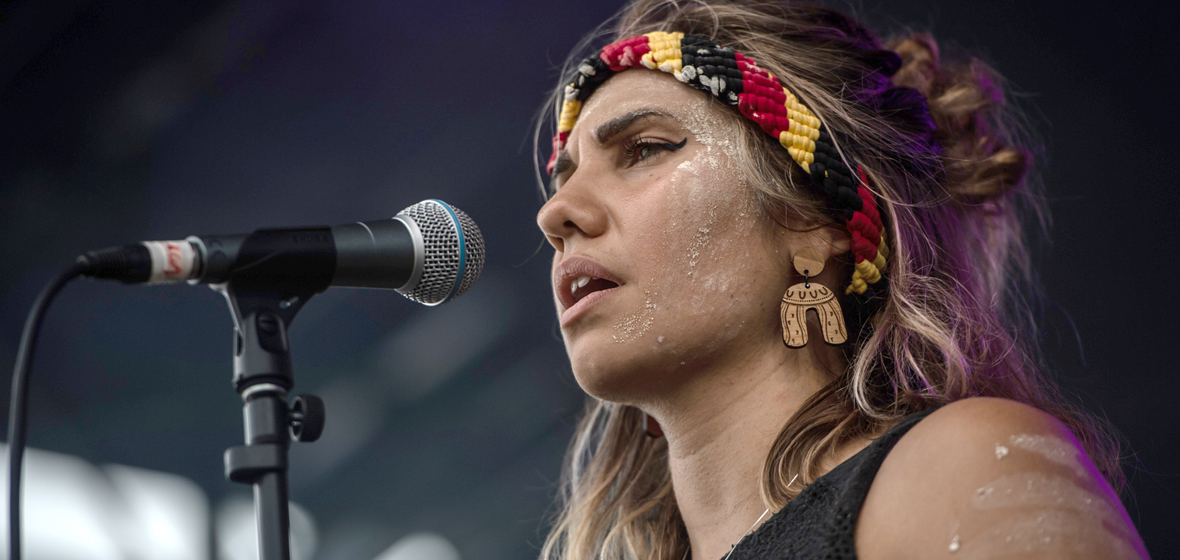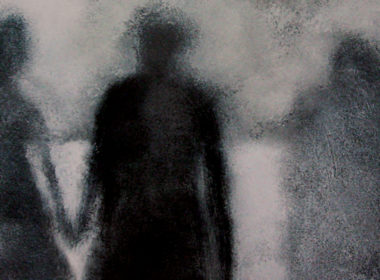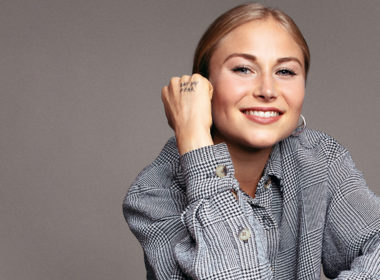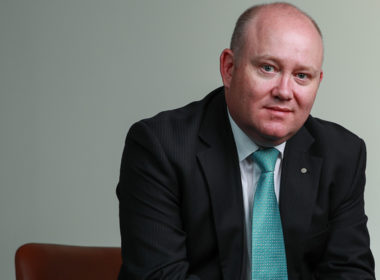“I wanted to create a space for … big yarns with young people because I feel like they are experiencing it but not always acknowledged in their experience in that space.”
The last 12 months have been immensely challenging for all Australians. LSJ looks beyond the legal profession to unearth valuable leadership lessons from those shining through the mire.
KIRLI SAUNDERS: Proud Gunai woman, author, poet, educator, consultant
Kirli Saunders often replies to text messages with the phrase “appreciate you”.
Such poetic turn of phrase is unsurprising given her day job as an award-winning author of lyrical children’s novels, but it is also a telling insight of a gentle, yet powerful, leadership steeped in gratitude.
Only just 30 – a decade when so many are still finding their voice – Saunders, the 2020 NSW Aboriginal Woman of the Year, is using the beauty of her words to empower the chorus of the next generation; so they too can speak up and be heard.
“You don’t get to be in these places overnight, and I stand on the shoulders of giants, like my mum and the other powerful women in our families and communities,” Saunders tells LSJ.
“They have been so powerful in helping shape my path. I feel really grateful that they’ve helped me to be who I am today and hopefully I get to do the same for little ones as I carry over in this space too.”
A former full-time teacher, Saunders was the founder of the Poetry in First Languages project; a sweeping endeavour which aspires to teach First Nations languages across Australia by connecting schools with Elders, language custodians and poets. The project supported both Aboriginal and non-Aboriginal kids to create poetry in First Nations languages.
This work that led to her recognition in last year’s NSW Woman of the Year Awards, but she believes her leadership in this space was only made possible by the path forged before her.
“Being the NSW Aboriginal Woman of the Year last year was wild. I was standing there with so many powerful women on the stage, and some First Nations women I really admire, like Professor Ngiare Brown and Professor Pauline Clague” Saunders says.
“I was astounded to receive that award, and I don’t take it lightly.
“I think it comes with responsibility to add and contribute to community and to continue to change the ways that non-First Nations people relate with First Nations people here and overseas, and how we care for Country.
“So many people who have shaped my journey, they are all First Nations leaders. I feel so lucky to learn from and be alongside them in this path, teaching about country.”
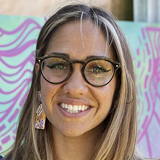 Kirli Saunders
Kirli Saunders
When asked who she draws inspiration from, Saunders says “there are too many to name”: from her mum, Joyce Saunders, great aunt and Gundungurra elder Aunty Val Mulcahy to the Indigenous publishers including Rachel Bin Salleh and Grace Lucas Penningtonwho helped deliver her words to thousands of eager readers.
“Outside of the family, some public figures I take grounding and confidence from would include lots of mob, lots of First Nations women, like Teela Reid, Prof. Megan Davis, Brooke Boney, Rach McPhail, Nessa Turnbull Roberts, Alison Whittaker, Ellen Van Neervan and Jazz Money. These women are our story tellers, lawyers and change makers advocating for First Nations people, and for constitutional reform.”
Reid and Saunders were the first two winners of the Daisy Utemorrah award for an unpublished manuscript by an Indigenous author of children’s or young adult fiction.
In 2020, Saunders published her second book, Bindi, to critical and commercial acclaim. In the days after she speaks with LSJ, Bindi scoops the Small Publishers’ Children’s Book of the Year at the 2021 Australian Book Industry Awards (ABIA).
It follows accolades for her previous books, including a shortlisting for the Prime Minister’s Literary Awards and CBCA notables for her debut picture book The Incredible Freedom Machines. Her poetry collection, Kindred, was also shortlisted for the 2020 ABIA.
Crafting the careful prose of Bindi in a mixture of Gundungurra and English, Saunders wanted her young readers to feel part of “big conversations”.
“It is a soul work for me,” she says.
“I’m eco-confetti, celebrating that our stories, about land, language, activism, climate change, culture and care are being read, heard and held, especially by our young ones.”
Saunders describes her latest book as one about “caring for Country” with elements of memoir and a call to action on climate change.
“It is very autobiographical in that it includes a lot of stories about growing up on Gundungarra country, and it includes Gundungurra language, and it talks about threatened and endangered species,” she says.
“This book is all about bringing young people into big conversations about traditional backburning and cultural care for Country and climate change. I wanted to create a space for those big yarns with young people, because I feel like they are experiencing it but not always acknowledged in their experience in that space.
“Having these bold experiences means we can bring about bolder change. Bindi is a book I am very excited to have on the shelves and one that I am thrilled to write the sequel for.”
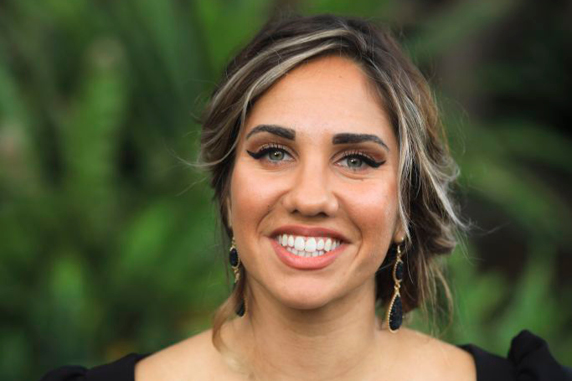
As her work expands to include leading consulting projects, so much of her bright future remains unwritten – but a health disruption over the past year has been a lesson in treading gently in her personal life.
It is a task easier said than done for the active surfer, bushwalker and campaign and yoga enthusiast.
“I am learning how to explore mental wellness, able-bodiedness and to manage my workload differently,” she says.
“I guess that is a big one at the moment for me. It’s been a real shake up having to move in new ways and to ask for help; to take my timelines and to be honest that sometimes I need a bit more rest at the moment or I need a little bit more time to achieve in the way that I usually would.
“The blessing in that is I am learning that communicating your needs and your boundaries and asking for help is a beautiful thing, though I am not always gracious at it.”
Though asking for help can be difficult, finding space for others is a hallmark of Saunders’ footprint as a community leader.
“It’s something I value of the strong, powerful women in our communities: that they share the speaking space, they ask lots of questions, they speak confidently from their experience. They don’t talk about something they don’t know. They hold space for other people and they’re soft and gentle but firm in their morals or beliefs,” she says.
“[With them] it’s also about connectivity. We are always saying, ‘Hey, how can we do this better?’”
“I take a lot of grounding in that; from the strong, fierce, black matriarchs who are working in social impact or changing opinions or unpicking biases and moving us forward so there is gender equality and equality racially for minority groups, and queer women, and women with disability. Our leaders, these are the people I really admire.
“All of those women have modelled leadership to me. They have helped me stay grounded, ask questions, listen more and I think all of those things have contributed to me being a leader. They’re definitely shaping my path and I feel really grateful for them.”

